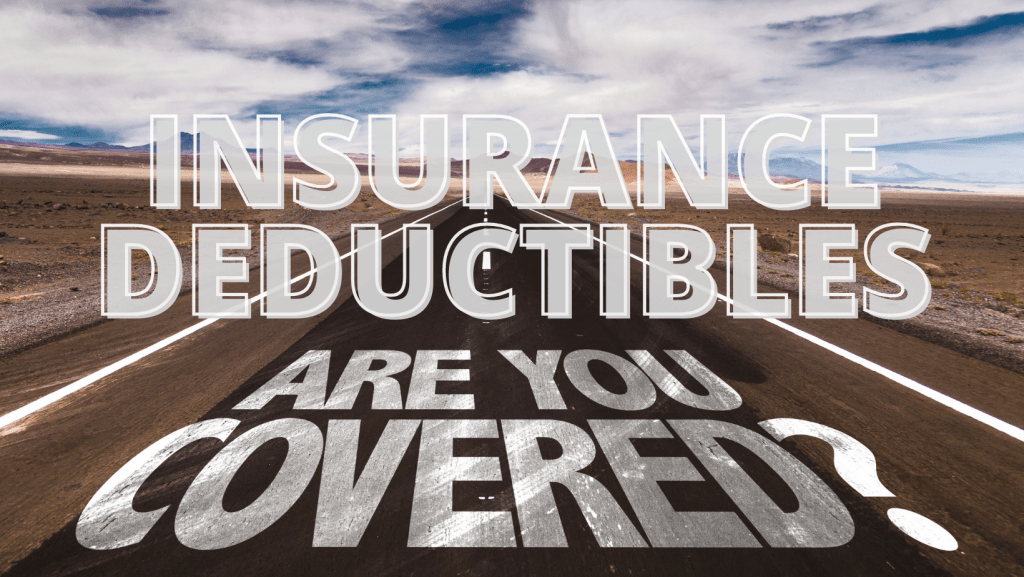by Heide Peters, Insurance Agent
AUTOMOBILE INSURANCE DEDUCTIBLES
First of all, you must understand, if you do not carry collision coverage on your automobile insurance policy, and you are AT FAULT in a car accident, your vehicle will not be covered by your insurance company.
If you are NOT AT FAULT, if possible, it is best to report the claim to the at fault person’s insurance company. The reason is, you will be trying to get your deductible back, and if you can go through the at fault person’s insurance company, your deductible will not come into play.
The deductible is the amount of money you are responsible to pay toward your own vehicle’s damage if you are at fault in an accident. This is before the insurance company pays anything
out to you.
HOMEOWNERS INSURANCE DEDUCTIBLES
A homeowners insurance deductible is the amount of money that you’re responsible for paying before your insurance company will pay you for a covered loss. The resulting claim payment that you receive from your insurance company is the total damage or loss amount minus your deductible.
Some types of insurance on your homeowners policy, such as earthquake insurance, carry separate deductibles which are usually a percentage. It can sometimes be as high as 20% or more. It is a percentage of the amount of replacement cost on your home. For example, if your replacement cost for your home is $300,000, and you carry a 10% deductible for your earthquake coverage, then your out of pocket amount for an earthquake claim would be $30,000. If you do carry earthquake coverage, and have a claim, depending on your deductible,if it is too high it may not cover the claim.
IN GENERAL
It’s simple math—if a covered insurance claim comes to $5000, and you have a $500 deductible, you are responsible for the first $500, and the remaining $4500 for your property, is paid by the insurance company.
But obviously, if the amount of your loss is less than your deductible there’s no reason to submit a claim. For example, if your deductible is $1,000 and you sustain $800 in damages, then your insurance company isn’t going to pay anything. The amount of damage is less than your deductible, and the loss is entirely your financial responsibility.
The higher the deductible—the lower the premium you pay. But if you have a covered claim, the higher the deductible the more responsibility of the payment of the damage is on YOU as well.
In many instances with small claims, provided there are no injuries, it is better not to submit them. That is something you should discuss with your agent—as well as what deductibles are right for you.

